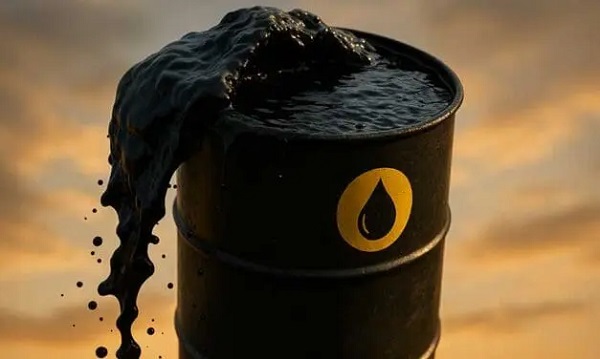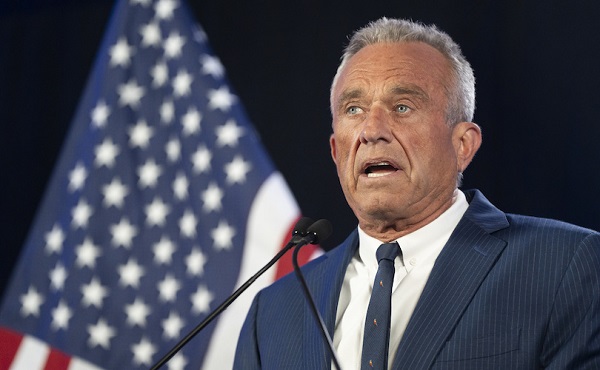Alberta
Where Iron and Earth Meet – Oil & Gas Workers for Renewable Energy

Iron and Earth is a Canadian non-profit organization led by oilsands workers who advocate for a balanced approach towards a green energy transition. The organization was founded in 2015 during the economic crisis that led to the termination of thousands of oil and gas workers nationwide. It began as a collective of boots-on-the-ground employees who had experienced the hard times brought on by the boom-bust nature of the oil and gas industry, and wanted to be a part of the movement to diversify and build resilience in Canada.
 According to the Iron and Earth mission statement, Where Iron and Earth Meet, “There’s a place for the oilsands, and there’s a place for renewable energy. The intention is not to shut down the oilsands, but to see they are managed more sustainably while developing our renewable energy resources more ambitiously.”
According to the Iron and Earth mission statement, Where Iron and Earth Meet, “There’s a place for the oilsands, and there’s a place for renewable energy. The intention is not to shut down the oilsands, but to see they are managed more sustainably while developing our renewable energy resources more ambitiously.”
Dialogues surrounding sustainability and diversification often place renewable energy alternatives at odds with the oil and gas industry, with little room for productive discussion. Iron and Earth provides a platform for oilsands workers, business owners, non-profits, politicians and consumers to meet at the same table and collaborate effectively to build a more sustainable future for all Canadians. Rather than contribute to divisive narratives that position oil and gas and renewable energy as mutually exclusive industries, Iron and Earth advocates for a balanced approach towards diversification, sustainability and a renewable transition.
 “Iron and Earth is proof of the dichotomy of people working in the oil and gas industry who care about the environment very, very much,” says Bruce Wilson, board member for Iron and Earth. “There is a diverse array of political affiliations and backgrounds within the organization, from individuals presently working in oil and gas to those who have recently transitioned, to those who have never worked in the industry at all.” Wilson joined Iron and Earth in 2018 after more than 30 years in the oil and gas industry, including 17 years with Shell International.
“Iron and Earth is proof of the dichotomy of people working in the oil and gas industry who care about the environment very, very much,” says Bruce Wilson, board member for Iron and Earth. “There is a diverse array of political affiliations and backgrounds within the organization, from individuals presently working in oil and gas to those who have recently transitioned, to those who have never worked in the industry at all.” Wilson joined Iron and Earth in 2018 after more than 30 years in the oil and gas industry, including 17 years with Shell International.
By focusing on industry overlaps, Iron and Earth highlights the ways in which fossil fuels and renewable energy can be beneficial, reinforcing sectors that can produce positive outcomes for the Canadian workforce and the global climate crisis. “Fortunately for many of the workers who are affected by the ongoing boom and bust cycles of the oilsands, many renewable energy jobs require the same skills and tradespeople that are currently working in the Canadian oil and gas industry” (1).
 Iron and Earth streamlines the transfer of skills between industries by offering a number of programs and resources to support workers seeking to transition away from fossil fuels into renewable energy. This includes offering training, classroom education, and hands-on experience to broaden the understanding of industry overlaps that will aid oil and gas workers in finding their fit in clean technology.
Iron and Earth streamlines the transfer of skills between industries by offering a number of programs and resources to support workers seeking to transition away from fossil fuels into renewable energy. This includes offering training, classroom education, and hands-on experience to broaden the understanding of industry overlaps that will aid oil and gas workers in finding their fit in clean technology.
These processes and resources operate with respect to the reality that transitions away from oil and gas into renewables can be a daunting and difficult process for many. Former Canadian oil and gas worker and current Iron and Earth spokesperson, Nick Kendrick, came to Iron and Earth in 2018 after reaching a fork in the road in his own career path. After 5 years in oil and gas, Kendrick was faced with the employment insecurity many workers in the Canadian oil and gas industry are familiar with. “When I started in oil and gas, prices were booming,” he says, “but by the time I got up north, the industry was struggling. People were getting laid off, and I realized it might be time to make a move.”
Kendrick made the decision to return to school at the University of Calgary, where he pursued a Master’s Degree in Sustainable Energy. It was there he connected with Iron and Earth for his capstone project, where he facilitated the drafting of a strategic path forward for the organization. This included mapping out geographic locations that offered the most opportunity to deliver impactful training workshops and support upcoming renewable energy projects, as well as encourage Indigenous participation.
“Leaving oil and gas for renewables is a very scary thing, especially in Alberta,” says Kendrick, “I admire how Iron and Earth’s approach is not to completely abandon the oilsands. They’ve been very foundational for Canada, but they’re not sustainable. It’s time to help each other progress onto something new.”
 In September 2020, Iron and Earth unveiled their Prosperous Transition Plan, framing the future for Canada’s green transition. The Prosperous Transition Plan boldly calls on the Trudeau Government to invest $110 billion over the next decade into a green recovery for Canada. The plan highlights four focal points of the Canadian economy: workforce, business, infrastructure and environment. With an emphasis on repurposing oil and gas infrastructure and getting people back to work, Iron and Earth’s Prosperous Transition Plan focuses on recovering from the COVID-19 pandemic, decarbonizing the economy and addressing inequality to ensure a prosperous future.
In September 2020, Iron and Earth unveiled their Prosperous Transition Plan, framing the future for Canada’s green transition. The Prosperous Transition Plan boldly calls on the Trudeau Government to invest $110 billion over the next decade into a green recovery for Canada. The plan highlights four focal points of the Canadian economy: workforce, business, infrastructure and environment. With an emphasis on repurposing oil and gas infrastructure and getting people back to work, Iron and Earth’s Prosperous Transition Plan focuses on recovering from the COVID-19 pandemic, decarbonizing the economy and addressing inequality to ensure a prosperous future.
With more than 1000 active members across Canada from a variety of industrial trades, Iron and Earth is continually expanding and advocating for ethical, legitimate solutions to facilitate Canada’s transition to renewable energy. “These are not utopian suggestions,” says Wilson, “they are pragmatic solutions that require purposeful, ambitious action from the government … Change and thrive is the business model for the future.”
To learn more about Iron and Earth’s mission and Prosperous Transition Plan, visit https://www.ironandearth.org.
For more stories, visit Todayville Calgary.
Alberta
Equalization program disincentivizes provinces from improving their economies

From the Fraser Institute
By Tegan Hill and Joel Emes
As the Alberta Next Panel continues discussions on how to assert the province’s role in the federation, equalization remains a key issue. Among separatists in the province, a striking 88 per cent support ending equalization despite it being a constitutional requirement. But all Canadians should demand equalization reform. The program conceptually and practically creates real disincentives for economic growth, which is key to improving living standards.
First, a bit of background.
The goal of equalization is to ensure that each province can deliver reasonably comparable public services at reasonably comparable tax rates. To determine which provinces receive equalization payments, the equalization formula applies a hypothetical national average tax rate to different sources of revenue (e.g. personal income and business income) to calculate how much revenue a province could generate. In theory, provinces that would raise less revenue than the national average (on a per-person basis) receive equalization, while province’s that would raise more than the national average do not. Ottawa collects taxes from Canadians across the country then redistributes money to these “have not” provinces through equalization.
This year, Ontario, Quebec, Manitoba and all of Atlantic Canada will receive a share of the $26.2 billion in equalization spending. Alberta, British Columbia and Saskatchewan—calculated to have a higher-than-average ability to raise revenue—will not receive payments.
Of course, equalization has long been a contentious issue for contributing provinces including Alberta. But the program also causes problems for recipient or “have not” provinces that may fall into a welfare trap. Again, according to the principle of equalization, as a province’s economic fortunes improve and its ability to raise revenues increases, its equalization payments should decline or even end.
Consequently, the program may disincentivize provinces from improving their economies. Take, for example, natural resource development. In addition to applying a hypothetical national average tax rate to different sources of provincial revenue, the equalization formula measures actual real-world natural resource revenues. That means that what any provincial government receives in natural resource revenue (e.g. oil and hydro royalties) directly affects whether or not it will receive equalization—and how much it will receive.
According to a 2020 study, if a province receiving equalization chose to increase its natural resource revenues by 10 per cent, up to 97 per cent of that new revenue could be offset by reductions in equalization.
This has real implications. In 2018, for instance, the Quebec government banned shale gas fracking and tightened rules for oil and gas drilling, despite the existence of up to 36 trillion cubic feet of recoverable natural gas in the Saint Lawrence Valley, with an estimated worth of between $68 billion and $186 billion. Then in 2022, the Quebec government banned new oil and gas development. While many factors likely played into this decision, equalization “claw-backs” create a disincentive for resource development in recipient provinces. At the same time, provinces that generally develop their resources—including Alberta—are effectively punished and do not receive equalization.
The current formula also encourages recipient provinces to raise tax rates. Recall, the formula calculates how much money each province could hypothetically generate if they all applied a national average tax structure. Raising personal or business tax rates would raise the national average used in the formula, that “have not” provinces are topped up to, which can lead to a higher equalization payment. At the same time, higher tax rates can cause a decline in a province’s tax base (i.e. the amount of income subject to taxes) as some taxpayers work or invest less within that jurisdiction, or engage in more tax planning to reduce their tax bills. A lower tax base reduces the amount of revenue that provincial governments can raise, which can again lead to higher equalization payments. This incentive problem is economically damaging for provinces as high tax rates reduce incentives for work, savings, investment and entrepreneurship.
It’s conceivable that a province may be no better off with equalization because of the program’s negative economic incentives. Put simply, equalization creates problems for provinces across the country—even recipient provinces—and it’s time Canadians demand reform.
Alberta
Provincial pension plan could boost retirement savings for Albertans

From the Fraser Institute
By Tegan Hill and Joel Emes
In 2026, Albertans may vote on whether or not to leave the Canada Pension Plan (CPP) for a provincial pension plan. While they should weigh the cost and benefits, one thing is clear—Albertans could boost their retirement savings under a provincial pension plan.
Compared to the rest of Canada, Alberta has relatively high rates of employment, higher average incomes and a younger population. Subsequently, Albertans collectively contribute more to the CPP than retirees in the province receive in total CPP payments.
Indeed, from 1981 to 2022 (the latest year of available data), Alberta workers paid 14.4 per cent (annually, on average) of total CPP contributions (typically from their paycheques) while retirees in the province received 10.0 per cent of the payments. That’s a net contribution of $53.6 billion from Albertans over the period.
Alberta’s demographic and income advantages also mean that if the province left the CPP, Albertans could pay lower contribution rates while still receiving the same retirement benefits under a provincial pension plan (in fact, the CPP Act requires that to leave CPP, a province must provide a comparable plan with comparable benefits). This would mean Albertans keep more of their money, which they can use to boost their private retirement savings (e.g. RRSPs or TFSAs).
According to one estimate, Albertans’ contribution rate could fall from 9.9 per cent (the current base CPP rate) to 5.85 per cent under a provincial pension plan. Under this scenario, a typical Albertan earning the median income ($50,000 in 2025) and contributing since age 18, would save $50,023 over their lifetime from paying a lower rate under provincial pension plan. Thanks to the power of compound interest, with a 7.1 per cent (average) nominal rate of return (based on a balanced portfolio of investments), those savings could grow to nearly $190,000 over the same worker’s lifetime.
Pair that amount with what you’d receive from the new provincial pension plan ($265,000) and you’d have $455,000 in retirement income (pre-tax)—nearly 72 per cent more than under the CPP alone.
To be clear, exactly how much you’d save depends on the specific contribution rate for the new provincial pension plan. We use 5.85 per cent in the above scenario, but estimates vary. But even if we assume a higher contribution rate, Albertan’s could still receive more in retirement with the provincial pension plan compared to the current CPP.
Consider the potential with a provincial pension contribution rate of 8.21 per cent. A typical Albertan, contributing since age 18, would generate $330,000 in pre-tax retirement income from the new provincial pension plan plus their private savings, which is nearly one quarter larger than they’d receive from the CPP alone (again, $265,000).
Albertans should consider the full costs and benefits of a provincial pension plan, but it’s clearly Albertans could benefit from higher retirement income due to increased private savings.
-

 Alberta2 days ago
Alberta2 days agoAlberta deserves a police force that actually reflects its values
-

 Crime1 day ago
Crime1 day agoFormer NYPD Inspector Breaks Down How Charlie Kirk’s Shooter Will Be Caught
-

 Alberta2 days ago
Alberta2 days agoOPEC+ chooses market share over stability, and Canada will pay
-

 Crime1 day ago
Crime1 day agoSurveillance video shows Charlie Kirk’s killer slipping away moments after shooting
-

 Crime2 days ago
Crime2 days agoFormer FBI Agent Says Charlie Kirk Assassination May Have Been ‘A Professional Hit’
-

 Crime17 hours ago
Crime17 hours agoArrest made in Charlie Kirk assassination
-

 Alberta2 days ago
Alberta2 days agoProvincial pension plan could boost retirement savings for Albertans
-

 Bruce Dowbiggin2 days ago
Bruce Dowbiggin2 days agoKirk’s Killing: Which Side Can Count on the Military’s Loyalty Now?








